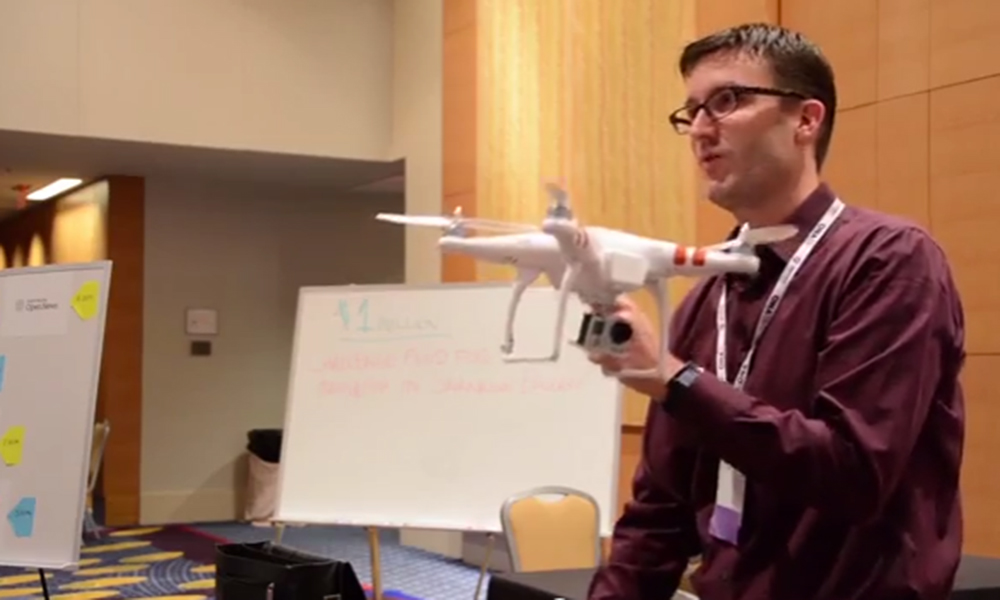Journalists were fascinated by the drone that University of Nebraska professor Matt Waite recently flew around the Online News Association’s annual conference.
The federal government is not as enthused.
Waite said at the conference presentation that he had received a letter in July ordering him to shut down his project of two years — testing and flying drones as part of the university’s Drone Journalism Lab
He was then informed, he said, that he needed permits because he was a paid professor.
“We had been flying under the idea that we could use hobbyist rules,” he said. “If you’re a hobbyist you can fly, but you can’t be compensated in any way, shape or form. Well, the FAA is defining compensation very, very broadly — so a student getting a grade is being compensated, they’re out. Anybody taking money, out. Anybody taking even links to their company website, out.”
Now that drones have become cheap enough for the average citizen to buy (they start at $300), professionals are considering different ways to use them. With the Federal Aviation Administration set to release new rules for small drones in early 2014 and Jeff Bezos’ announcement of Amazon delivery drones, these flying robots are set to become crucial tools for multiple industries.
“Not to sound like a used car salesman, but I can find you a drone that fits your budget,” Waite said. “That’s the opportunity; it’s also the peril.”
There’s huge potential for drones to enhance the level of journalism produced in this country, including the ability to collect data during severe weather situations, Waite said in a separate interview with AJR.
“My original dream when I started this in November of 2011 was that you could have just a bank of these in the newsroom and any old idiot could go up and grab one and cover a fire with it,” Waite said at the presentation.
However, safety and privacy remain significant issues. Even small drones take some skill to fly, Waite said, and there’s a possibility of hurting someone if the drone is circling over a crowd and something goes wrong.
Which is why he is so interested in studying the technology — in hopes of understanding it enough to show other journalists how to effectively use it.
“I have the ability now to look at this system and treat it like an investigative reporting project and help people out,” Waite said.








Leave a Comment